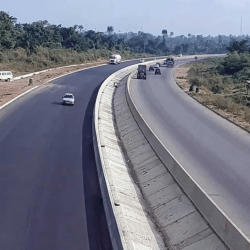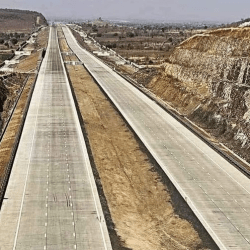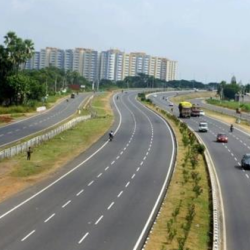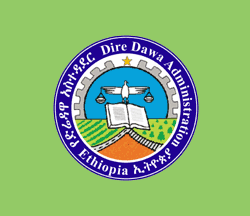The Mieso-Dire Dawa Expressway is a 160-kilometer road project that aims to modernize the existing road into an expressway standard with private sector participation.
- Project Length: 160 km
- Investment Type: Public-Private Partnership (PPP)
- Total Cost: $445 million
- Contracting Authority: Ethiopian Roads Authority (ERA)
- Proposed Duration: 25-30 years
- Current Status: Feasibility study ongoing
- Regions Covered: Oromia and Somali Regional States
Key Stakeholders in the Project
Several entities are involved in the planning and execution of this expressway:
- Ethiopian Roads Authority (ERA) – Leading the project’s implementation
- Public-Private Partnership Directorate General – Overseeing the PPP process
- Private Investors – Expected to finance, build, operate, and maintain the expressway under a Build-Operate-Transfer (BOT) model
Project Scope and Objectives
The Mieso-Dire Dawa Expressway project aims to:
✅ Enhance road connectivity between Mieso and Dire Dawa
✅ Improve trade logistics by offering a modern transport route to Dire Dawa, a key commercial hub
✅ Facilitate economic growth in the Oromia and Somali regions
✅ Encourage private investment in Ethiopia’s transport sector
✅ Reduce traffic congestion and travel time along the corridor
Financial Structure and Cost Estimation
The total estimated cost of the project is $445 million, with funding sourced from private investors under a PPP model.
| Project Component | Details |
|---|---|
| Total Road Length | 160 km |
| Estimated Cost | $445 million |
| Investment Model | Build-Operate-Transfer (BOT) |
| Project Duration | 25-30 years |
| Revenue Source | Toll collection |
Under the BOT model, private investors will finance the construction, operate the road for 25-30 years, collect toll revenues, and then transfer the expressway back to the Ethiopian government.
Procurement Mode and PPP Structure
The Ethiopian government has opted for competitive bidding to select a private partner. The expressway will be developed using the Build-Operate-Transfer (BOT) model, which involves:
🔹 Design: The private partner designs the expressway to meet modern standards
🔹 Build: The investor constructs the road infrastructure
🔹 Finance: The private sector funds the project upfront
🔹 Operate: The investor manages the road and collects tolls to recover costs
🔹 Maintain: The road is maintained by the private operator for sustainability
🔹 Transfer: After the concession period, the road is handed back to the government
Benefits of Public-Private Partnerships (PPPs) in Infrastructure Development
PPPs play a vital role in Ethiopia’s infrastructure sector by offering:
✔️ Reduced government financial burden
✔️ Access to private sector efficiency and innovation
✔️ Better road maintenance and long-term sustainability
✔️ Job creation during construction and operation phases
✔️ Revenue generation through toll collection
Challenges in PPP Implementation
Despite the benefits, PPP projects face several challenges:
⚠️ Regulatory hurdles that can delay approvals
⚠️ Uncertainty in toll revenue collection and financial sustainability
⚠️ Potential resistance from the public against toll roads
⚠️ Long approval processes that may slow down execution
Expected Impact on Ethiopia’s Transportation Network
🚗 Reduced travel time: The expressway will allow faster movement between Mieso and Dire Dawa
🚛 Improved trade routes: The road will facilitate smoother transportation of goods to key markets
🏗 More private sector investments: This project will encourage further PPP initiatives in Ethiopia
Sustainability and Environmental Considerations
The project is expected to incorporate:
🌱 Eco-friendly construction materials
🌍 Measures to reduce vehicle emissions on the expressway
🏞 Infrastructure that minimizes environmental impact on local ecosystems
Expected Timeline and Project Milestones
📅 Feasibility Study: Ongoing
📅 Bidding Process: Expected in the coming months
📅 Construction Start: Within 1-2 years
📅 Completion & Operation: Within 5-7 years
International Funding and Investment Opportunities
Ethiopia is actively seeking international investors and financial institutions to fund PPP projects. Possible funding sources include:
- African Development Bank (AfDB)
- World Bank
- Private equity infrastructure funds
Future Prospects for PPP Projects in Ethiopia
Ethiopia is poised for more PPP projects in key sectors such as:
✔️ Highway and road expansion
✔️ Renewable energy projects
✔️ Airport and railway infrastructure
The Mieso-Dire Dawa Expressway is a major infrastructure project that underscores Ethiopia’s commitment to modernizing its road network through Public-Private Partnerships (PPPs). By leveraging private sector investment, the project aims to improve connectivity, boost trade efficiency, and establish a sustainable toll-based road management system.
With effective execution, this project is expected to drive economic growth, enhance regional trade, and set a benchmark for future PPP initiatives in Ethiopia.

Frequently Asked Questions (FAQs)
❓ What is the purpose of the Mieso-Dire Dawa Expressway?
The project aims to enhance connectivity, reduce travel time, and support economic growth in Oromia and Somali regions.
❓ How is the project funded?
The expressway is financed through a Public-Private Partnership (PPP) model, where private investors finance, build, and operate the road.
❓ What is the PPP model used for this project?
The Build-Operate-Transfer (BOT) model, where the private investor operates the road for 25-30 years before transferring it to the government.
❓ What is the estimated completion timeline?
The project is expected to be completed within 5-7 years after the bidding process is finalized.
❓ How will the toll system work?
Tolls will be collected by the private investor to recover costs and ensure long-term road maintenance.






